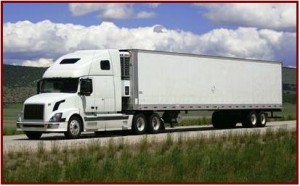The California Air Resources Board has fined two out-of-state transportation brokers for violations of Truck and Bus Regulations. The $152,000 penalty will fund air pollution research, improve children’s health and install air monitors. Marten Logistics and Roadrunner Transportation Systems did not authenticate that trucks hired or dispatched for service were compliant with the state’s tough Truck and Bus regulation, and for not keeping adequate records as the law requires.
Two automotive trends are evident.
- Death of the Diesel: California Air Resources Board – Ways to Lower Pollution Exposure for People Living, Working near Urban Highways; BMW 320D Meets German Emissions Regulations; US v Fiat Chrysler on Diesel Emissions Defeat Devices
- States Defying the Trump Administration’s attack on the EPA and clean air: Draft Technical Assessment Report of Greenhouse Gas Emissions and Fuel Economy Regulations Released; Non-Independence Day as EPA Prepares to Scuttle CAFE; 50 Mayors, 11 States to Defend +50 MPG CAFE StandardDiesel trucks are among California’s biggest sources of air pollution. Because they are so durable, they can operate for decades and belch significant amounts of diesel pollution along the way. The Truck and Bus Regulation requires all older heavy-duty diesel trucks operating in California to be either retrofitted with soot filters or replaced with a 2010 or later model year engine to greatly reduce harmful emissions.
Diesel exhaust contains a variety of harmful gases and more than 40 other known cancer-causing compounds. In 1998, California identified diesel particulate matter as a toxic air contaminant based on its potential to cause cancer, premature death and other health problems.
The Truck and Bus Regulation also requires that a broker or motor carrier verify that a diesel truck is compliant with regulation requirements before they can hire or dispatch that vehicle. This additional check is an important way to help ensure that compliant trucks are operating in California.
“Any company that hires or dispatches trucks for operation in California must verify the compliance of those vehicles with California law,” said CARB Enforcement Chief Todd Sax. “Failure to do so is a violation of law, and businesses that fail to comply should expect that they will get caught and pay the price. We do everything in our power to protect Californians from high-polluting vehicles and their many negative health impacts, including enforcement of our strict laws.”
The Truck and Bus Regulation also requires that a broker or motor carrier verify that a diesel truck is compliant with regulation requirements before they can hire or dispatch that vehicle. This additional check is an important way to help ensure that compliant trucks are operating in California.
Marten Logistics, a wholly-owned subsidiary of Marten Transport based in Wisconsin, was fined $100,000 for not verifying that each truck hired or dispatched was compliant with California. Of that amount, $75,000 has been directed to the state’s Air Pollution Control Fund to support for air quality research, and $25,000 to the Prescott Joseph Center for Community Enhancement to fund Northern County Breathmobile, a mobile unit that expands health care services to children with asthma in disadvantaged communities in Northern California.
Roadrunner Transportations Systems, also based in Wisconsin, also failed to verify compliance for each vehicle hired or dispatched and maintain records as required by the Truck and Bus Regulation. The company agreed to pay $52,250 in penalties, including $27,250 to the Air Pollution Control Fund and $25,000 to California Safe Schools to fully fund their Ground Truthing project. This project allows community members to locate and map facilities that could be potentially hazardous and relay the info to CARB and the South Coast Air Quality Monitoring District for follow-up action.
Both Marten and Roadrunner have agreed to comply with all applicable terms of the Truck and Bus Regulation, and not operate or direct the operations of any vehicle subject to the regulation without verifying that each hired or dispatched vehicle is complying. The companies have also agreed to accurate and timely records as required.


